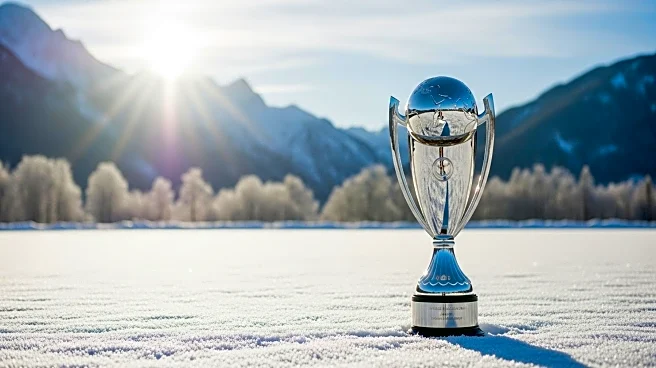What's Happening?
FIFA President Gianni Infantino has expressed openness to the idea of holding World Cups and Club World Cups during winter months, rather than the traditional summer schedule. This consideration comes amid discussions about the international football calendar post-2030, which faces challenges due to expanded competitions. Infantino's comments were made during the European Football Clubs general assembly in Rome, where he emphasized the need to keep an open mind about optimizing the calendar. The 2034 World Cup, awarded to Saudi Arabia, is expected to be held in winter, similar to the 2022 Qatar World Cup. Infantino highlighted the potential benefits of playing in cooler months, citing the extreme heat in some European countries during summer.
Why It's Important?
The potential shift to winter World Cups could have significant implications for global football, affecting domestic leagues, player schedules, and fan engagement. Holding tournaments in winter may alleviate concerns about player health and performance in extreme heat, but it could disrupt established league schedules, particularly in Europe. This change could also impact broadcasting rights and commercial interests, as the timing of major tournaments influences viewership and sponsorship deals. FIFA's ability to implement such changes may face resistance from stakeholders, including leagues and players' associations, who have previously filed complaints about calendar impositions.
What's Next?
FIFA has established a working group to explore the feasibility of moving major tournaments to winter months, with discussions ongoing. The organization will need to engage with various stakeholders, including leagues, clubs, and players, to address concerns and negotiate potential changes. The outcome of these discussions could lead to a formal proposal for a revised international match calendar. Additionally, FIFA is considering expanding the Club World Cup format, with Spain and Morocco as potential hosts for the 2029 edition. The decision to hold tournaments in winter could influence future hosting bids and scheduling decisions.








